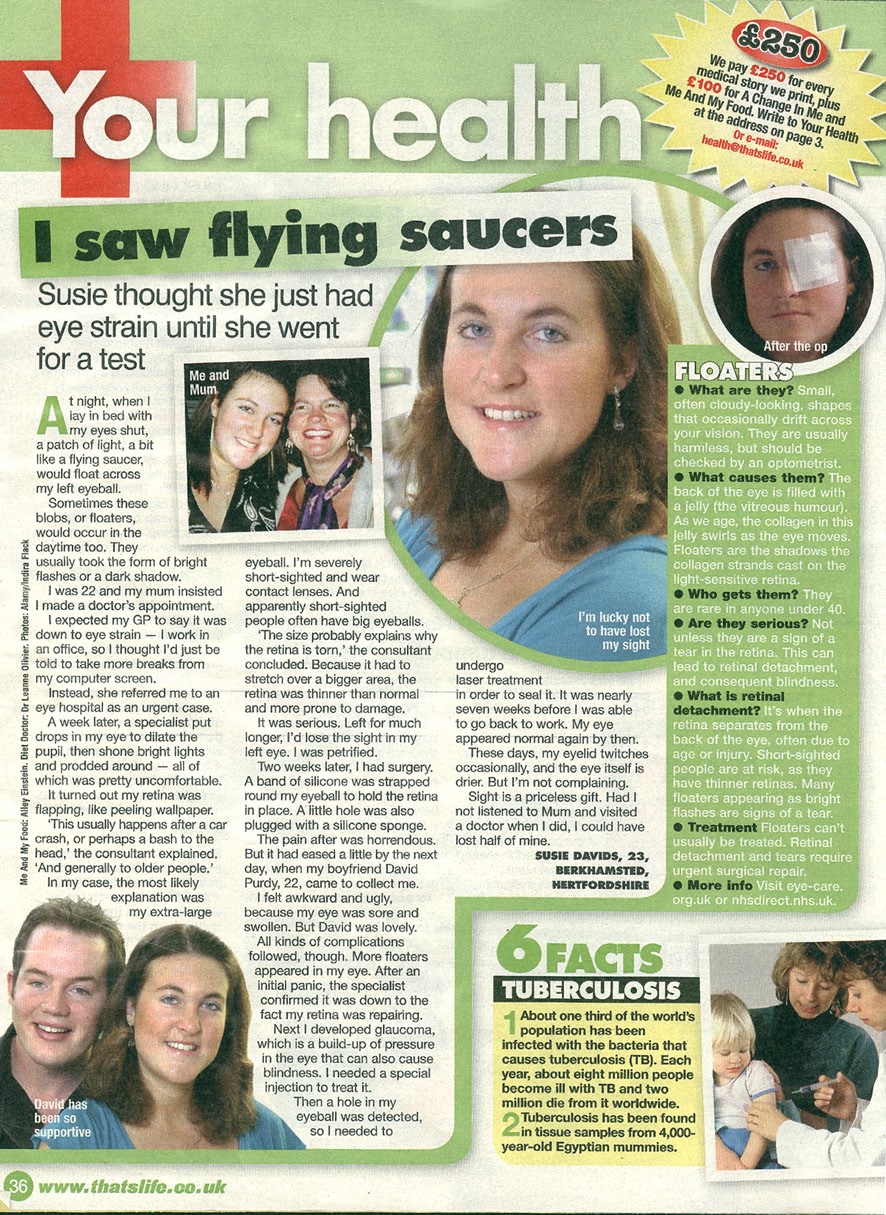|
Published article in 'That's Life' magazine |
|
I SAW FLYING SAUCERS: Susie thought she just had eye strain until she went for a test |
|
|
Sometimes, these blobs or floaters, would occur in the daytime too. They usually took the form of bright flashes or a dark shadow. I was 22 and my Mum insisted I made a doctor's appointment. I expected my GP to say it was down to eye strain - I work in an office, so I thought I'd just be told to take more breaks from my computer screen. Instead, she referred me to an eye hospital as an urgent case. A week later, a specialist put drops in my eye to dilate the pupil, then shone bright lights and prodded around - all of which was pretty uncomfortable. It turned out my retina was flapping, like peeling wallpaper. 'This usually happens after a car crash, or perhaps a bash to the head,' the consultant explained. 'And generally to older people.' In my case, the most likely explanation was my extra-large eyeball. I'm severely short-sighted and wear contact lenses. And apparently short-sighted people often have big eyeballs. 'The size probably explains why the retina is torn,' the consultant concluded. Because it had to stretch over a bigger area, the retina was thinner than normal, and more prone to damage. |
|
FLOATERS WHAT ARE THEY? Small often cloudy-looking, shapes that occasionally drift across your vision. They are usually harmless, but should be checked by an optometrist. WHAT CAUSES THEM? The back of the eye is filled with a jelly (the vitreous humour). As we age, the collagen in this jelly swirls as the eye moves. Floaters are the shadows the collagen strands cast on the light-sensitive retina.
They are rare in anyone under 40. ARE THEY SERIOUS? Not unless they are a sign of a tear in the retina. This can lead to retinal detachment, and consequent blindness. WHAT IS RETINAL DETACHMENT? It's when the retina separates from the back of the eye, often due to age or injury. Short-sighted people are at risk, as they have thinner retinas. Many floaters appearing as bright flashes are signs of a tear.
Floaters can't usually be treated. Retinal detachment and tears require urgent surgical repair. MORE INFO Visit eye-care.org.uk or nhsdirect.nhs.uk
|
||||||||||||||||||
|
|
|

